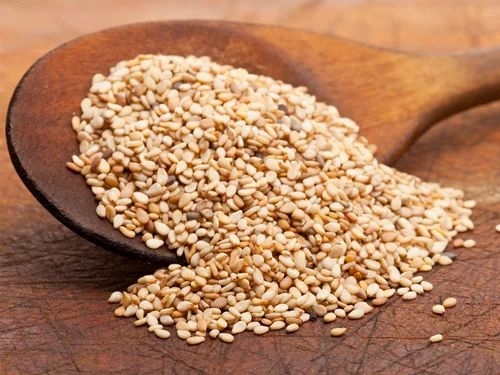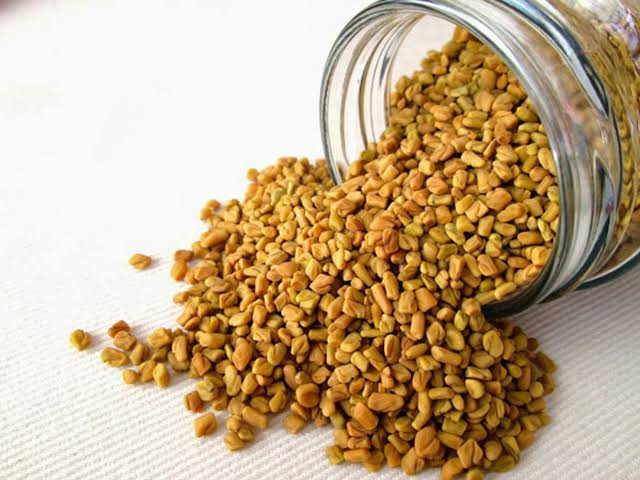The Nutritional Powerhouse: Sesame Seeds and Their Medicinal Uses & Health Benefits
Sesame seeds, often overshadowed by more prominent superfoods, are tiny nutritional powerhouses with a rich history dating back thousands of years. These small seeds, scientifically known as Sesamum indicum, have been revered for their medicinal uses and health benefits across various cultures. In this blog, we will explore the incredible properties of sesame seeds and how they can contribute to your overall well-being.
Nutritional Content
Before delving into the medicinal uses and health benefits, let's first examine the impressive nutritional profile of sesame seeds:
1. Nutrient-Dense: Sesame seeds are a concentrated source of essential nutrients, including protein, fiber, healthy fats, vitamins, and minerals.
2. Rich in Healthy Fats: They contain primarily monounsaturated and polyunsaturated fats, which are heart-healthy and may reduce the risk of cardiovascular disease.
3. Protein Power: Sesame seeds are a good source of plant-based protein, making them an excellent choice for vegetarians and vegans.
4. Essential Minerals: They are loaded with essential minerals such as calcium, iron, magnesium, phosphorus, and zinc.
5. Vitamins: Sesame seeds contain vitamins B1 (thiamine), B3 (niacin), and vitamin E, a potent antioxidant.
Medicinal Uses
1. Heart Health: The high content of monounsaturated and polyunsaturated fats in sesame seeds can help lower cholesterol levels, reducing the risk of heart disease.
2. Bone Health: Sesame seeds are a rich source of calcium, which is essential for maintaining strong bones and preventing conditions like osteoporosis.
3. Blood Pressure Regulation: The magnesium content in sesame seeds helps regulate blood pressure, potentially reducing the risk of hypertension.
4. Digestive Health: The fiber in sesame seeds aids in digestion, preventing constipation and promoting a healthy gut.
5. Diabetes Management: Some studies suggest that sesame seeds may help improve insulin sensitivity, which can be beneficial for individuals with diabetes.
Health Benefits
1. Antioxidant Properties: Sesame seeds are packed with antioxidants, including vitamin E, that protect cells from oxidative damage and may reduce the risk of chronic diseases.
2. Skin Health: The zinc in sesame seeds contributes to skin health by promoting collagen production and preventing premature aging.
3. Weight Management: The fiber and protein content of sesame seeds can help you feel full and satisfied, aiding in weight management.
4. Hormone Regulation: Sesame seeds contain lignans, which may help balance hormones and alleviate some symptoms of menopause.
5. Anti-Inflammatory Effects: Some studies suggest that sesame seeds may have anti-inflammatory properties, potentially reducing the risk of chronic inflammation-related diseases.
Incorporating Sesame Seeds into Your Diet
Now that you're aware of the medicinal uses and health benefits of sesame seeds, here are some delicious ways to incorporate them into your diet:
1. Sprinkle sesame seeds on salads or yogurt.
2. Use tahini (sesame seed paste) in dressings and dips.
3. Add sesame seeds to baked goods, such as bread, muffins, or cookies.
4. Include them in stir-fries or as a crunchy topping for cooked vegetables.
5. Enjoy a sprinkle of sesame seeds on your morning oatmeal or cereal.
Conclusion
Sesame seeds may be small, but they offer a wealth of medicinal uses and health benefits. Incorporating these nutrient-rich seeds into your diet can contribute to better heart health, stronger bones, and improved overall well-being. Whether you prefer them toasted, ground into tahini, or sprinkled on your favorite dishes, sesame seeds are a versatile and delicious addition to any diet. So, start reaping the benefits of these tiny powerhouses today!



Comments
Post a Comment